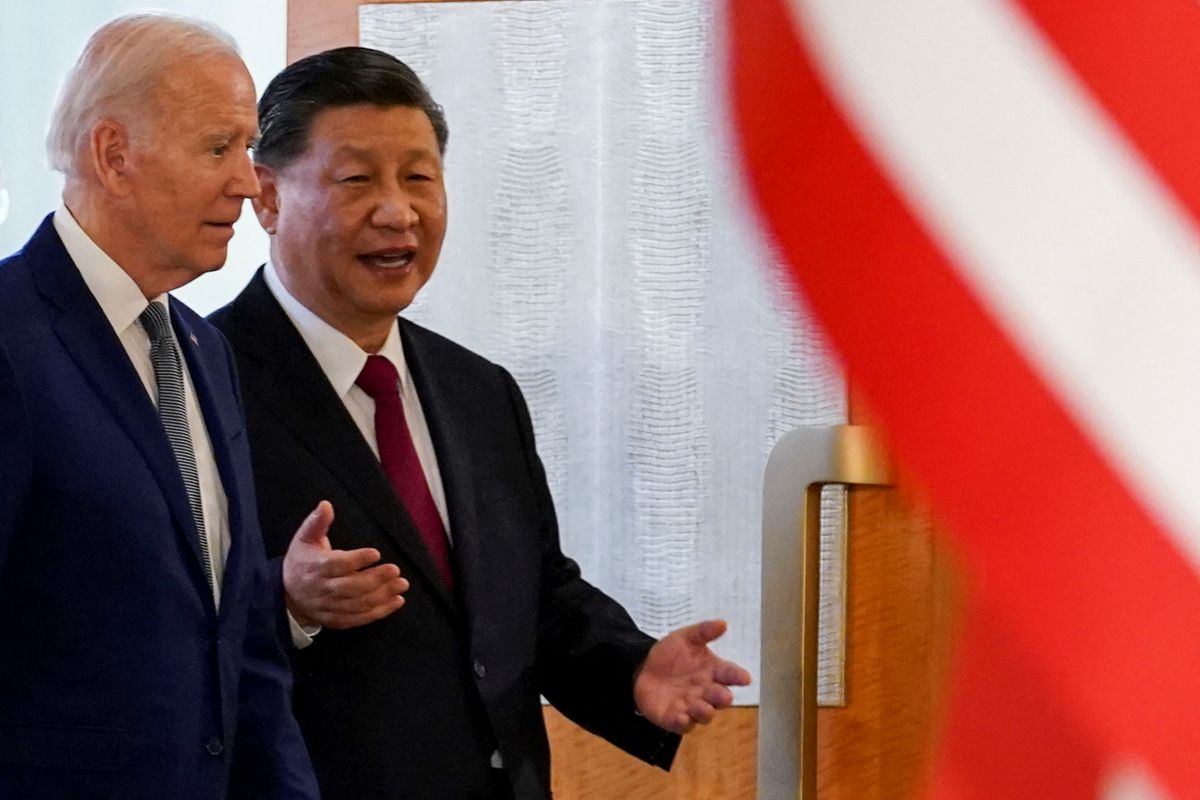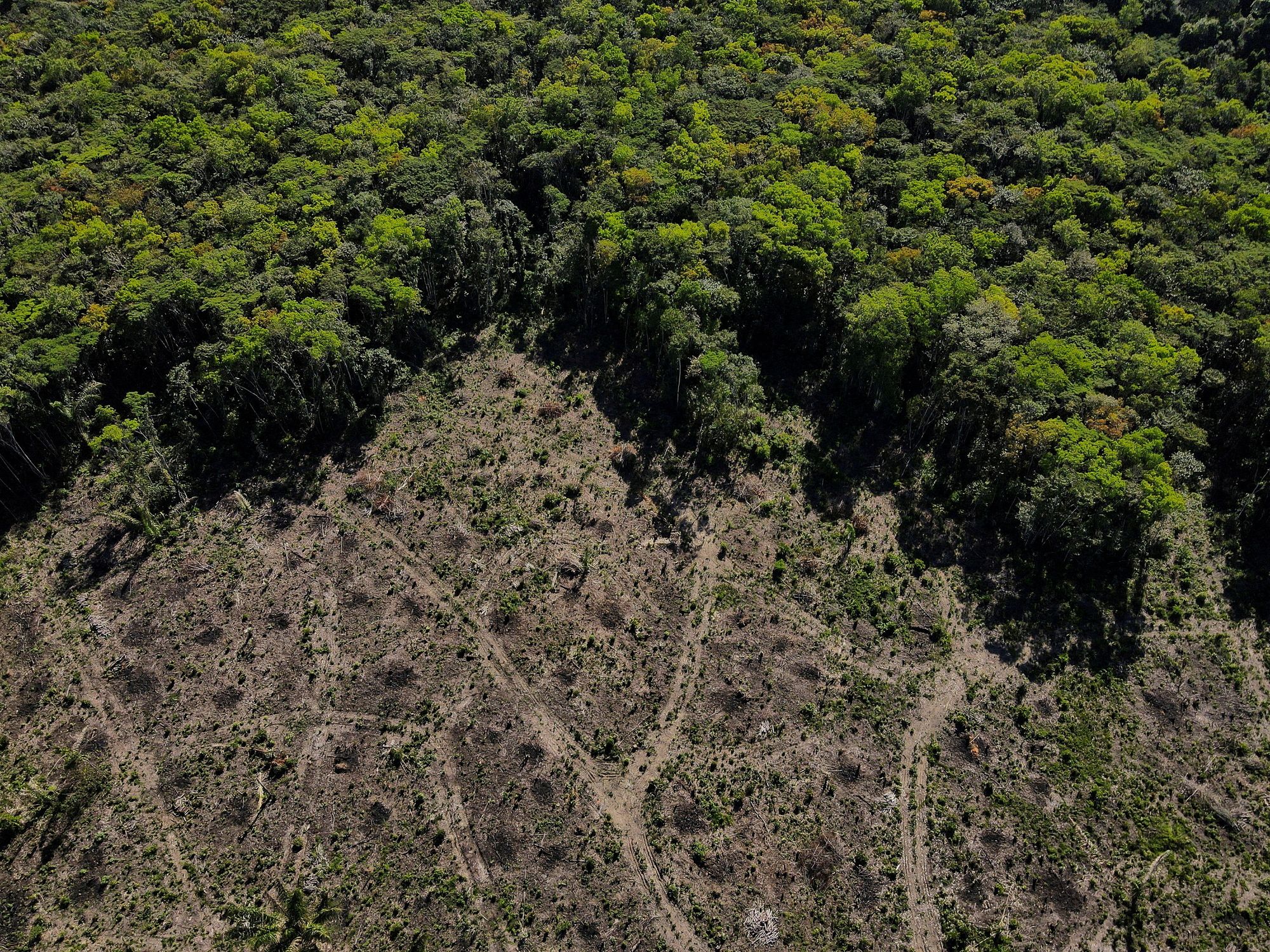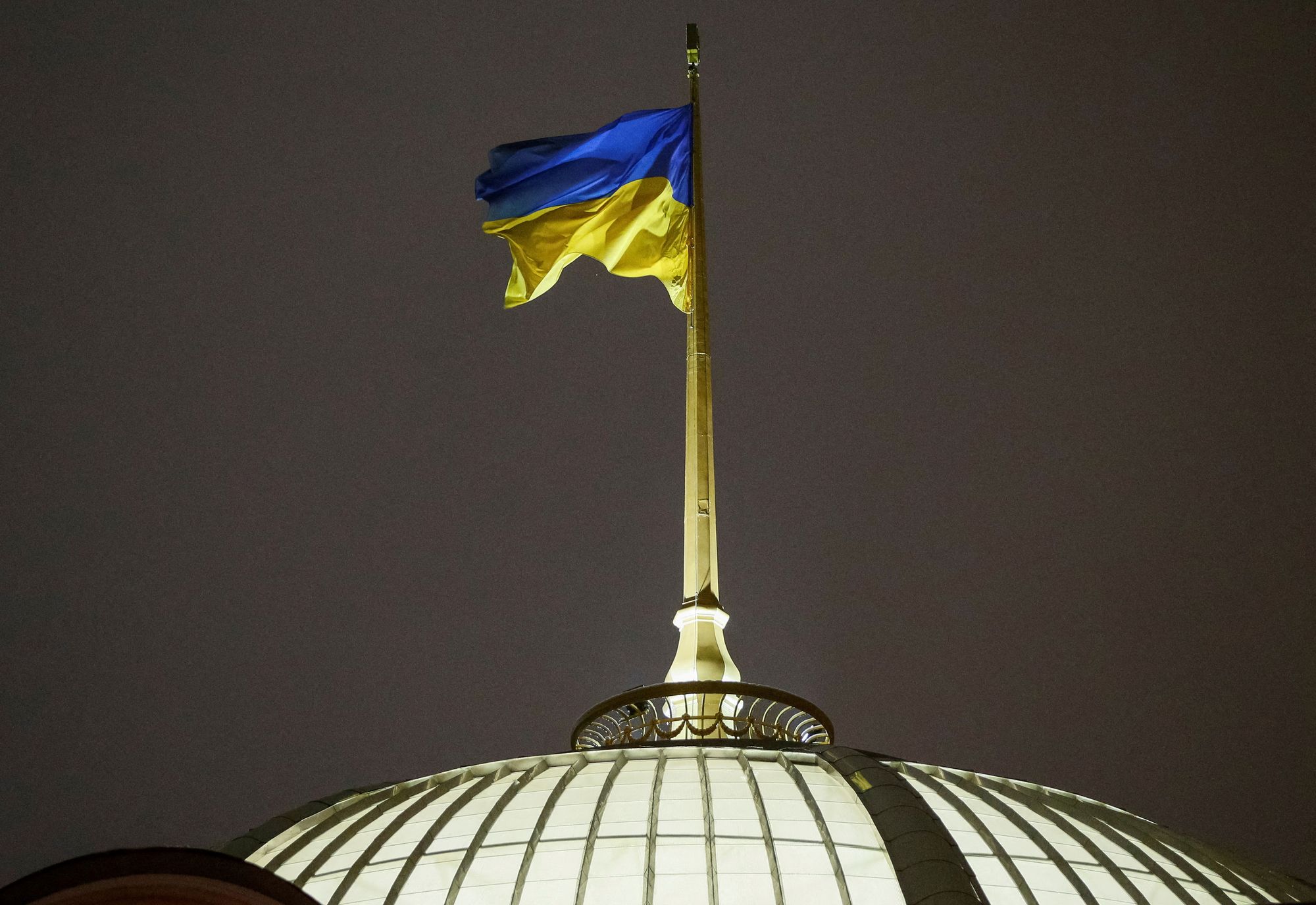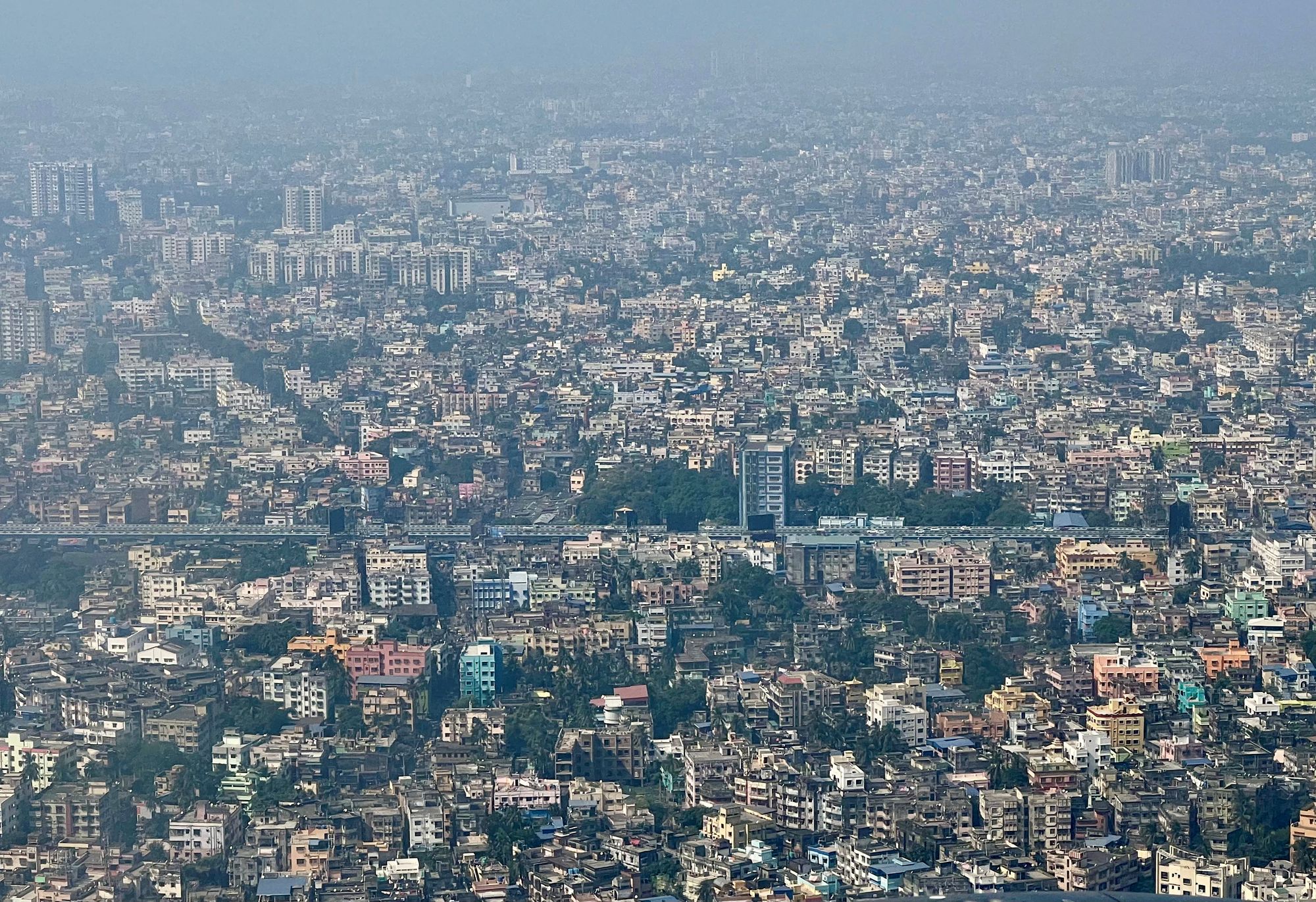From China's path to peace to more weird mascots – Here's your November 16 news briefing
To start off, we're looking into: China's path to peace? – China and US relations hit a low point when US House Speaker Nancy Pelosi made a controversial visit to Taiwan in August.

A few minutes every morning is all you need.
Stay up to date on the world's Headlines and Human Stories. It's fun, it's factual, it's fluff-free.
To start off, we're looking into:
China's path to peace?
China and US relations hit a low point when US House Speaker Nancy Pelosi made a controversial visit to Taiwan in August. This piled onto other disagreements between the two countries – things like trade, technology and human rights issues. But it seems China's approach is shifting after Monday's G20 meeting between Biden and Xi in Bali.
On Tuesday, Chinese Vice President Wang Qishan talked about China's global outlook at the Bloomberg New Economy Forum in Singapore. Wang said that the country's leaders would stick to peaceful development. He also said that the CCP would keep opening the country and "maintain strong policy continuity to provide greater certainties and stability for the world." His comments underscore the effort China is putting toward easing the years-long tension between the two countries.
An alliance to save the rainforest

Even though it's the final week of COP27 in Egypt, rainforests are still in the spotlight when it comes to climate change. The world's rainforests are at risk – from the Amazon in Brazil to the Congo River Basin, which is home to endangered wildlife like gorillas, to the third-largest rainforest in Indonesia. Brazil's recent election of Luiz Inacio "Lula" da Silva was a win for forests, as he had pledged protection for the Amazon during his campaign.
Lula has been looking to partner with the two other biggest rainforest nations – the Democratic Republic of Congo and Indonesia. And finally, on Monday, the three nations signed a joint agreement after a decade of talks for a trilateral alliance. The agreement says that countries should be paid for their efforts at forest conservation. It also aims to increase funding for the UN's REDD+ conservation program.
The UN says Russia needs to pay up

Last month in the UN General Assembly, 143 members voted to condemn Russia's illegal annexation of four regions in Ukraine. Now, the UN is also looking to make Russia pay up.
On Monday, the UN General Assembly passed a resolution calling for Russia to be held accountable for breaking the law by invading Ukraine and occupying Ukrainian territory. The UN is demanding it pay reparations for the damage and loss of life caused by the war. 94 members voted in favor of the resolution, 14 were against it (including China, North Korea and Iran), and 73 abstained.
Russia is not happy about this. It rejected the demand – to no one's surprise. On Tuesday, the Kremlin said it would do anything possible to keep the West from taking its frozen international reserves and using these assets as reparations for Ukraine. These reserves amount to more than US$300 billion.
To end, we'll look into:
Is overpopulation really a threat?

As the world's population hits 8 billion people, should we be worried? Will humans one day completely overrun Earth? Is this rising number causing climate change and food shortages? How many people can the planet even hold?
Well, actually, the theory of overpopulation is a widespread myth. The population isn't just going to keep growing at a faster and faster pace forever. In 2020, a study by the University of Washington's Institute for Health Metrics and Evaluation found "the global population was projected to peak in 2064 at 9.73 billion (8.84–10.9) people and decline to 8.79 billion (6.83–11.8) in 2100." And, if the UN's Sustainable Development Goals are realized – which include education and access to contraceptives – the population could be smaller, at 6.3 billion by 2100.
This population drop would present its own problems, especially when so much of the planet is banking on capitalism, which relies on constant growth. But, the idea that human beings will continue to reproduce at the same rate despite changing conditions and circumstances is just unrealistic. And it can have some nasty results.
The modern overpopulation myth and the panic around it caught on in the 1960s and never really went away. Today, when people talk about overpopulation, the conversation usually points toward non-white countries in the Global South. This is kind of strange, considering when it comes to issues like climate change, people from the Global South have lower individual emissions than those in countries like the US. According to Oxfam, "someone in the richest 10% of citizens in India uses on average just one quarter of the carbon of someone in the poorest half of the population of the United States."
It all comes down to a balance. While a high-fertility rate and rapid population boom can stretch a country's resources, falling below the "replacement" fertility rate can lead to a long-term lack of economic growth.
And talking about population control brings back memories of dangerous practices from the past. For example, the US used coerced sterilization programs to control POC, disabled and poor populations throughout the 20th century, even up until the 1980s. Abusive population control methods are tied to eugenics. Meanwhile, ethical population control methods included in the UN's Sustainable Development focus on a person's agency, emphasizing things like contraception and women's education. These can actually have a stronger impact on fertility rates.
In other news ...
📈Stocks: MSCI’s global gauge of stocks is up 0.92% to 2678.23 at the time of writing.
📰Some specifics:
- Dow Jones rose 0.17% to 33,592.92.
- Nasdaq Composite lifted 1.45% to 11,358.41
- S&P 500 moved up 0.87% to 3991.73.
- Hang Seng Index jumped 4.11% to 18,343.12.
🧠Some quick factors to bear in mind:
- In the US, stocks rallied after the release of the producer price index, a measure of wholesale inflation, which increased 8% year-on-year. It was better than expected, with a forecast of 8.3% year-on-year. The report adds to last week's consumer price index data which suggests inflation may be peaking and the Fed could slow down rate hikes.
- Markets were briefly shaken with news of two Polish citizens killed in an explosion rumored to be from Russian missiles. Although this isn't confirmed yet, markets were concerned about a potential escalation of the Russia-Ukraine conflict.
- Chinese and Hong Kong stocks rallied as investors digested the ease of China's strict COVID measures, the government's property sector rescue package and lessening tensions between the US and China after Biden and Xi's G20 meeting on Tuesday.
- Hong Kong's Hang Seng Index rose 4.11%, and the index recorded a nearly 25% increase for the month. China's blue-chip Shanghai Shenzhen CSI 300 gained 10% in that time.
👄Some comments and chatter:
- "The PPI read certainly adds more fuel to the fire for those who feel we may finally be on a downward inflation trend. The market embraced last week's consumer downtick and today's initial reaction seems to be more of the same," said Mike Loewengart, head of model portfolio construction at Morgan Stanley's Global Investment Office.
- "The market is particularly sensitive now that Ukraine has taken back more territory that Russia had captured after the war began," said Marc Chandler, chief market strategist at Bannockburn Global Forex in New York.
🛢Oil: Oil prices rose on Tuesday after the news that oil supply to Hungary through the Druzhba oil pipeline has been temporarily suspended due to a fall in pressure. US crude settled at US$86.92 and Brent rose to US$93.86 per barrel.
👛Bitcoin: At the time of writing, Bitcoin is up 1.61% to US$16,857.60.
🚫EU expands Iran sanctions: On Monday, the EU pushed additional sanctions on Iran, targeting 29 people and three organizations. This is a response to Iranian officials' use of force against peaceful protesters. At least 341 demonstrators have been killed in recent protests, and over 15,800 have been arrested, according to the HRANA news agency.
💣War crossing borders?: For the first time, the war in Ukraine may have spilled over into another country – and a NATO one. An explosion happened in Poland near the border, knocking out power and killing two people. US intelligence says it may have been Russian missiles. There hasn't been any official confirmation from the US or Poland yet, but Poland called a "crisis meeting" after the explosion.
🧕Taliban Sharia Law: In Afghanistan, the ruling Taliban has ordered its interpretation of Sharia Law to be enforced. This could mean a return to public executions, amputations and flogging. Now, experts fear more human rights are in danger there.
🕊G20 to urge end to war: On Tuesday, US President Biden and Ukrainian President Zelenskiy urged G20 representatives to keep pressuring Russia over its war on Ukraine, which has totally upset the global economy. Now, G20 leaders have drafted a declaration that condemns the war but also recognizes that there are different views among the bloc. More talks and a possible vote are expected Wednesday.
🚤Migrant crossing crackdown: On Monday, the interior ministers of France and the UK signed an agreement to crack down on migrants crossing the English Channel. More police will patrol the Channel, as these crossings cause some issues between the two countries.
🏨Foreign spending at Trump's hotel: A committee in the US government has released documents that show steep spending of over US$750,000 from foreign leaders at former President Donald Trump's hotel in Washington, DC. The committee says this situation could have violated the law by exploiting US foreign policy for personal financial gain.
📢Unrest in Guangzhou: Crowds gathered in China's Guangzhou on Monday night to push through COVID blockades and march through the streets in outrage over ongoing coronavirus curbs. Guangzhou has the largest new outbreak in China, and lockdowns could widen throughout the city.
🤑US$20 billion to Indonesia to curb coal: Indonesia, which is one of the world's largest coal consumers, has pledged to reduce its coal reliance. The country also plans to step up in transitioning to renewable power after signing a US$20 billion climate finance deal funded by the US, Japan and other wealthy countries.
🍾Let's celebrate: So, apparently, people are so thrilled that COVID is in the rearview that they are drinking Moet Hennessy out of its champagne stocks – so much so that the company's dubbed it the "roaring 20s." Don't worry; they'll be restocked by New Year's so we can ring in 2023 properly.
🔥2024 Olympics mascot: The mascots for the 2024 Paris Olympics and Paralympics have been revealed – the Phrygian cap. A soft red hat, aka a liberty cap, is a symbol of liberty from the French Revolution. The Paralympic version of the mascot features a prosthetic leg starting at the knee, making this the first time an Olympic mascot has a visible disability.

Written and put together by Joey Fung, Vanessa Wolosz, and Christine Dulion




Comments ()